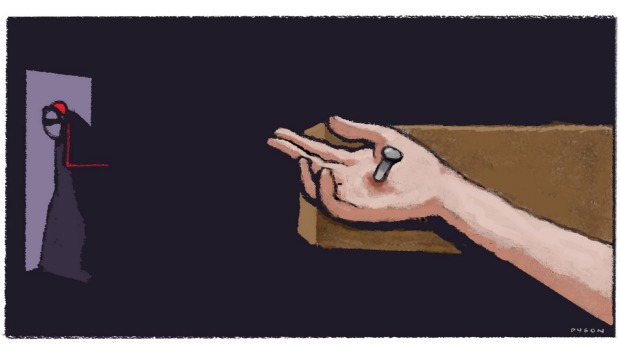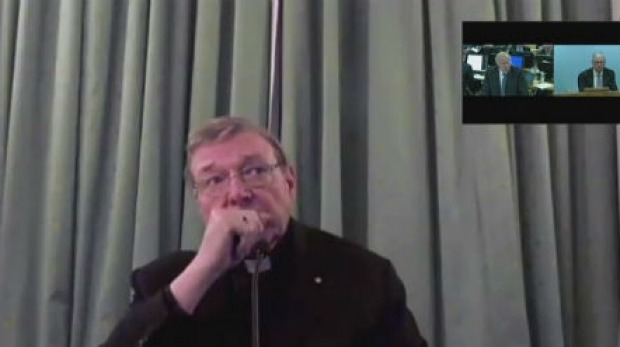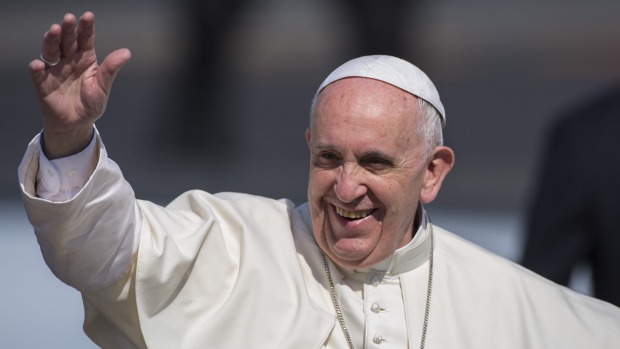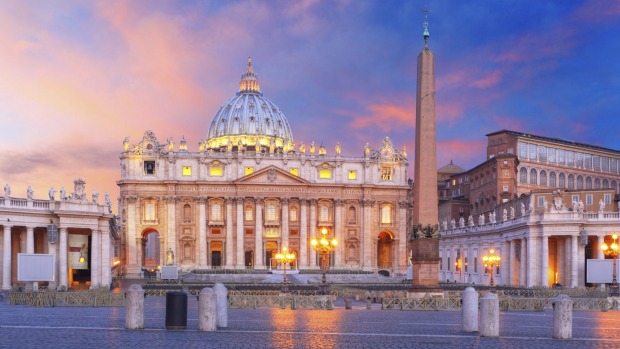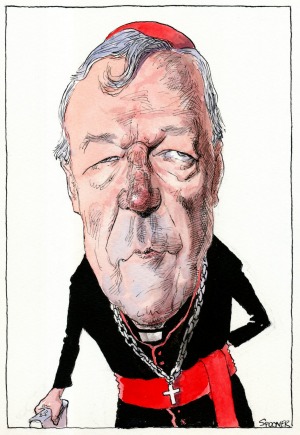The Tragic Legacy of George Pell
By Barney Zwartz
Watching Pell give evidence, I wondered whether he was handicapped by his unfortunate demeanour: his slow, heavy delivery and unemotional expression can seem pompous, overbearing and unfeeling. But the longer it went on, the more watchers would have been convinced this was the real Pell being slowly revealed. It wasn't just the style, it was the content: a pattern of denial, evasion, defensiveness, then blaming others – especially the dead and the demented. He was never to blame for anything. Did he bear any responsibility for the Catholic Church's long-term failure to protect children or tackle paedophile priests? "Tangentially, marginally. I regret that I wasn't more vigorous in my questioning," he told the commission's senior counsel, Gail Furness. But, of course, he had been badly deceived by those who should have kept him informed.
If he wasn't being deceived by bishops, other priests or the Catholic Education Office, then it was the victims' fault for not asking for specific action. Had they done so, the implication is, he would have acted with celerity and decision. But, to quote one of his own favourite phrases, there's no evidence of that. The royal commission revealed to the wider world the man many Catholics already knew: an ambitious, determined and politically astute cleric with many strengths, a champion of the institutional church – but one who made sure never to know too much, who never found an incentive to prioritise the welfare of children, and who certainly was not going to risk his career by challenging his superiors. We know what happens to whistle-blowers – they seldom end up as Vatican treasurer and senior adviser to the Pope. On Thursday, in a damaging exchange about a schoolboy who came to warn him about Brother Edward Dowlan in Ballarat, Pell conceded that with the benefit of 40 years hindsight he should have done more. Why did he need the 40 years, asked commissioner Peter McClellan – wasn't it a serious matter then? Yes, the cardinal replied, but people had different attitudes then.
Most institutions have employed the "different times, different mores" argument, but victim David Ridsdale, watching in Rome, had an excellent riposte: "People say things like 'It was a different time' ... I don't buy it because there is never a good time to rape children." It may prove unfortunate for the cardinal that the hearing was held in Rome, rather than back in Australia, to which his heart condition prevented him travelling. In Rome, he tends to be seen as the white hat tackling the black hats of the Curia (the Vatican bureaucracy), confronting entrenched interests and secrecy and reforming the finances. And apparently he is making some progress against determined opposition. His travails in Australia have attracted remarkably little attention in Rome for such a senior figure. And had the hearings been held here, he could probably have continued to quarantine the criticisms from the Vatican. As it is, the hearings have attracted considerable attention from Italian and international media, and will surely have some effect on his standing. Pell told the hearing on Thursday that Pope Francis was paying attention, receiving daily summaries.
Coming into the hearing on Wednesday, he made an off-the-cuff remark that he had the full backing of the Pope. What could that mean? Was it simply that the Pope still trusted him to carry out his Vatican assignment, despite these distractions? Was it a general personal endorsement? Or was it that the Pope had full confidence that Pell was above criticism in the matters the commission is investigating? If the latter, that could prove reckless and lead to the sort of regret the cardinal found it hard to express at the hearings. What if the royal commission finds that the cardinal was not a credible witness? That would be deeply damaging. And such a finding would not surprise, given the often-incredulous attitude of both McClellan and Furness, who suggested to Pell some of his evidence was "completely implausible" and designed to deflect blame. So now the Australian problems have landed in an unwelcome steaming pile on the Vatican doorstep, and the pressure is mounting on the Pope himself. Francis, for the most part, has been a great blessing to a beleaguered church, with his humility, openness and unerring ability to strike the right note and produce effective symbols.
But if there is one area where he has seemed relatively tone-deaf it is clergy sexual abuse, where his actions have yet to match the rhetoric. John-Paul II was much worse, mind you – first denying there was a problem, then saying it was a media beat-up, then that it was purely an Anglophone problem. Wrong, wrong, wrong. Francis said last September: "God weeps for the victims." Yet the Pope has not moved, as he promised, to end the Vatican secrecy on the issue, and has been slow to hold to account bishops involved in cover-ups. He set up a commission to examine clergy abuse, but last month one of the two victims on it was suspended for critical remarks, including calling for Pell to be sacked. For a man given to spontaneous gestures, Francis has stayed clear of sex abuse victims, with just two meetings in three years. What an impressive gesture it would have been to invite Australian victims to meet him, before the suggestion came from the victims and the media. Back to Pell. Cardinals have to offer their resignation to the Pope when they turn 75, and Pell's 75th birthday is in June. Until now, everyone assumed he would be asked to continue his Vatican reforms, but now this is being questioned. Whatever happens, Pell's reputation is irrevocably tarnished in Australia. He might have expected a shining legacy, as the most prominent Australian Catholic prelate of his generation, but the lustre cannot be restored. The more important question today is, what will Francis' legacy be on this vexed problem?
|
.
Any original material on these pages is copyright © BishopAccountability.org 2004. Reproduce freely with attribution.
